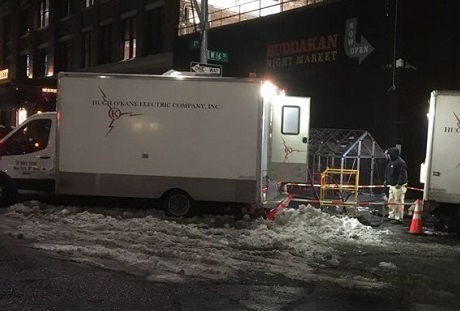Journeyman Electrician vs. Master Electrician
- Hugh O'kane
- Jun 29, 2021
- 2 min read

Journeyman Electrician vs. Master Electrician
Electricians such as those who work at Hugh Okane are trained professionals who provide essential services for us. Without their presence, we will be unable to power some of our electronics, such as televisions, lights, cell phones, or refrigerators.
Students training to become electricians are known as an apprentice. They are trained to become journeyman electricians. After that, a journeyman electrician can choose to become a master electrician by getting more hours of training.
Journeymen have perfected their skills, thereby allowing them to work in industrial, commercial, and domestic facilities – they are professionals – however, there are significant differences between journeyman electricians and master electricians.
Perhaps, your company is wondering the type of electrician to hire, or you are an aspiring electrician; keep reading to learn more about the differences between Journeymen and Masters.
Hugh O’Kane Electric Company has long been the chief supplier of electrical maintenance and construction services. We have been providing electrical services to tons of businesses since 1946.
Training and Experience of a Journeyman Electrician
Journeyman electricians are obligated to have eight thousand hours of work experience. And this is done within the space of a four-year apprenticeship. Apprentice aspiring to become journeymen learn how to do the following:
* Understand fire alarm systems
* Interpret drafts and mechanical blueprints
* Use protective devices
* Install and maintain power supplies and electrical equipment
* Follow electrical regulations and codes
Training and Experience of a Master Electrician
Journeymen can train to become masters after licensing. This can be achieved by completing an additional four thousand hours of on-the-job experience over the space of two years. They are also required to pass an exam that will determine whether or not to become master electricians.
Master electricians are required to show expertise in the following:
* Creating building plans and electrical blueprints
* Resolving complex electrical failures
* Monitoring, coaching, and managing other electricians
* Preparing and executing projects along with tradespeople such as contractors, engineers.
Although journeyman and master electricians begin with the same training, this evolves as their careers progress. Master electricians need to understand a more extensive scope of electrical concepts, which is why journeymen need additional training to assume more responsibilities.
Responsibilities of a Master Electrician
While the job duties of both a journeyman and master electrician are similar, there are certain roles specific to each of them. Because a master electrician has had more experience on the job, certain functions can be performed by only them. Some of these roles include the following:
* They oversee electrical project management
* They schedule job tasks for apprentice and journeyman electricians
* They work with contractors to design electrical plans and blueprints
* Master electricians install and maintain electrical systems and more
Responsibilities of a Journeyman Electrician
The responsibilities of journeymen include the following:
* They install and test electrical appliances
* They install electrical components in ceiling, floors, and walls
* Journeymen carry out duties standard electrician duties such as the installation and fixing of electrical fixtures or wires
* Upgrade or replace older electrical systems
Hugh O’Kane has always been the first to show up in the world of electrical services. Giving back to our communities would give us joy. Feel free to contact us and reach out to us if you have further questions.



Comments